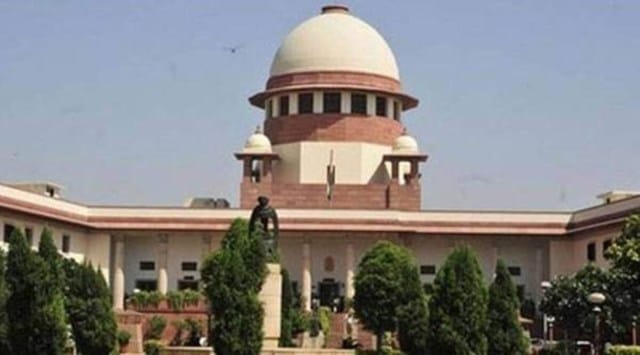Stay updated with the latest - Click here to follow us on Instagram
Ragpicker’s murder in 2018: SC rejects bail to 2 accused, criticises Gujarat HC, state govt
🔴 According to the case, 40-year-old ragpicker Mukesh Vaniya was allegedly beaten to death by five persons at a factory in Shapar village of Rajkot district on May 20, 2018, when he was collecting scrap along with his wife, Jaya, and a woman relative.
 The bench termed the move against the MLAs as “worse than expulsion”. (File)
The bench termed the move against the MLAs as “worse than expulsion”. (File)Rejecting the bail of two accused in the alleged murder of a Dalit ragpicker in Rajkot in 2018, the Supreme Court has criticised the Gujarat High Court for granting bail in a “perfunctory and casual manner”, and the Gujarat government for not moving an appeal against the bail orders.
In its judgment dated January 10, a Supreme Court division bench comprising Justices MR Shah and BV Nagarathna allowed a petition by the wife of the deceased, while quashing HC orders that granted bail to the two accused. The SC bench also ordered the accused to surrender before the jail authority concerned within a week.
According to the case, 40-year-old ragpicker Mukesh Vaniya was allegedly beaten to death by five persons at a factory in Shapar village of Rajkot district on May 20, 2018, when he was collecting scrap along with his wife, Jaya, and a woman relative. The accused suspected that the three were thieves.
Police registered a case of murder and allied charges against the accused under various provisions of the Indian Penal Code (IPC), the Gujarat Police Act and the Scheduled Castes and Scheduled Tribes (Prevention of Atrocities) Act.
In two separate orders in 2019, the Gujarat High Court granted regular bail to two of the accused. In October 2019, Jaya moved an appeal before the Supreme Court, challenging the HC orders through her counsel Colin Gonsalves who argued that the HC had materially erred in granting bail to the accused.
In its judgment, the SC bench recorded that the complainant and her relative had identified the accused in Test Identification Parade and put on record that the pipe and belt used in the alleged crime were also recovered.
“…the deceased Mukeshbhai was brutally beaten by the accused… and without considering the seriousness of the offences alleged and despite the statements of the eye witnesses, the High Court by the impugned orders have released the accused on bail in a most perfunctory and casual manner. The High Court has not at all considered the gravity of the offences alleged and the evidence collected during the investigation, which are forming part of the chargesheet,” the SC bench observed.
“…in such a serious matter and looking to the gravity of the offences and considering the statements of eye witnesses and that the entire incident has been recorded in the CCTV footages and the mobile phone, the High Court has committed a grave error in releasing the… accused on bail. The judgments and orders passed by the High Court… are unsustainable both, on facts as well as on law,” the bench added.
Coming down heavily on the Gujarat government for not moving an appeal against the HC orders in such a serious matter, the SC observed, “…the State has failed to protect the rights of the victim… this was the fit case where the State ought to have preferred the appeals challenging the orders passed by the High Court… In criminal matters the party who is treated as the aggrieved party is the State which is the custodian of the social interest of the community at large and so it is for the State to take all the steps necessary for bringing the person who has acted against the social interest of the community to book.”
Recording that Gujarat has a Director of Prosecution, the court observed, “Even the Director of Prosecution has failed to perform his duties… It is the duty of the Director of Prosecution to take prompt decision. Given that crimes are treated as a wrong against the society as a whole, the role of the Director of Prosecution in the administration of justice is crucial. He is appointed by the State Government in exercise of powers under…Code of Criminal Procedure.”
“That his is a crucial role is evident from conditions such as in Section 25A (2) of the Code, which stipulates a minimum legal experience of not less than 10 years for a person to be eligible to be Directorate of Prosecution and that such an appointment shall be made with the concurrence of the Chief Justice of the High Court,” the court added.
Refusing to accept submission by the counsel appearing for the Gujarat government that it takes time to decide on appeal, the SC bench observed, “The State ought to have been very serious even to maintain the rule of law in a serious matter like this … It is the duty of the Director of Prosecution and the State to ensure that the guilty are booked and punished.”







